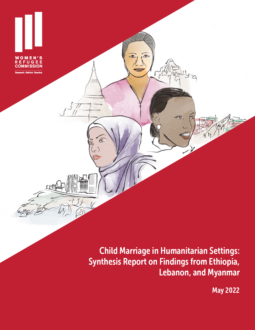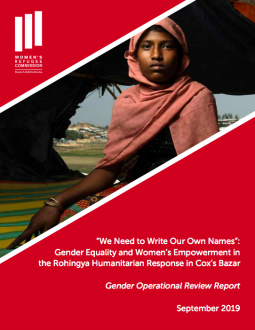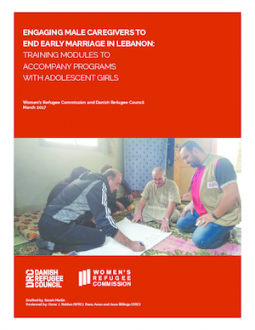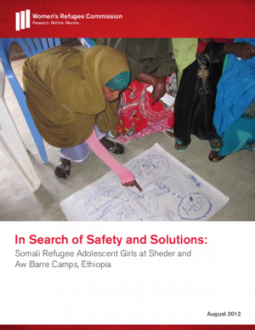
Child Marriage in Humanitarian Settings: Synthesis Report on Findings from Ethiopia, Lebanon, and Myanmar
PublishedChild marriage affects one in five adolescent girls globally and presents a significant public health concern for girls and their communities in many contexts. Research shows that the negative effects of child marriage range from tolls on the physical and mental health of girls to a reduction in economic opportunities and outcomes for their future children. Adolescents impacted by conflict and other humanitarian emergencies are some of the most vulnerable to this harmful practice, but the extent to which these contexts affect rates and drivers of underage marriage is not known.
In 2016, the Women’s Refugee Commission, in partnership with Johns Hopkins University Center for Humanitarian Health, International Medical Corps, International Rescue Committee, Kachin Development Group, and the Arab Institute for Women at the Lebanese American University, launched a multi-country study to assess the prevalence of child marriage, investigate factors related to the practice, and garner feedback on programs aimed at reducing it in humanitarian contexts. The study undertook household surveys in Ethiopia (2019), Lebanon (2018), and Myanmar (2018) and gathered qualitative information on life skills programs that engaged adolescent girls to improve their psychosocial well-being in Ethiopia and Lebanon.
This report contains findings that will enhance understanding of the relationship between child marriage and humanitarian contexts while informing future programming to prevent child marriage.




